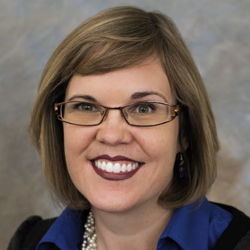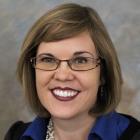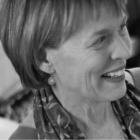Joanne, thank you for taking time to talk to us at The Well. You were a teacher before you went back for your EdD, right?
I taught in a high school for a while, and the first year was super, super, super rough. I just didn't think I was going to make it at all, but I did. And my second year was way better. And my third year, I'm thinking, rather arrogantly, okay, I'm really good at this now. [Laughing] Now what am I going to do? I thought I’d like to try to be a school librarian. So I filled out an application to the University of Illinois at Urbana, which is where I did my undergrad, and they admitted me to their library program — which was just great. So I got certified to be a school librarian. But while I'm doing that, I'm thinking, I’m not really as interested in this as I thought.
Side note Joanne added after reviewing the interview: “I am always fascinated by people who have a Plan for their lives (e.g., “First I am going to do A, and then B, and then C...”), because I haven’t been able to do that. I tend to fall into things. I also decided long ago to give up on the idea that there is some yellow brick road of God’s Will for my life. I think in undergrad I had this idea — somewhat supported by religious people, even InterVarsity people, at the time — that if I could just figure out God’s Will, then I’d know what to do when I grow up. Not true. God’s Will for me, I think, is for me to pay attention to God, to love the people around me, and to use my talents and bloom where I’m planted. I suspect God cares more about that — who I am — than what I’m doing career-wise.”
What I really wanted to do was to change education. I had all these ideas about the way I think schools should be better, but I thought the only way people would ever listen to me is if I got a really swanky degree, or if I taught for another twenty or thirty years, or maybe went into administration. How about I just fill out an application for graduate school and try for the swanky degree? So I did, and I got into Harvard, and they gave me a really generous scholarship, and I'm thinking, Well, hmm. Why don't I try that? As one of my friends said, "Do you want to go around telling people your whole life that you could've gone to Harvard and you didn't?" [Laughing]
I found Harvard to be really friendly and really warm, and competitive and rigorous. People were super supportive, and I found it just an extremely wonderful experience all the way around. It couldn't have gotten any better than it was.
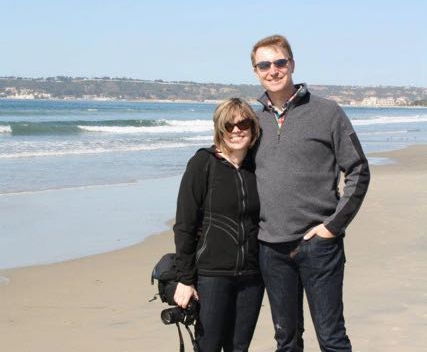
That's really good to hear. Were you married at the time?
I met my husband there. My husband and I are the poster children for InterVarsity.
We met at an all-Boston area IV retreat. So Harvard, MIT, Tufts, BC, BU. I didn't really want to go because I had far too much work to do that weekend. But I was leading the Harvard chapter of the School of Ed. I thought, I have to go and be a good example. So I got in my small car with four small women and we drove off to New Hampshire. I happened to meet Stephen at that retreat.
Very good! So, in terms of what you hoped to learn about education, was your time at Harvard worthwhile?
I really wanted to know how to make changes. That was the question. So I ended up studying Educational Policy.
And I learned how policy works, and how politicians and power work. And I realized that policy is going to be really hard to change. There are too many constantly-moving variables. If you're going to change what goes on in schools, you have to change either teacher education and train better teachers, or leader education and get better principals, and if you do that, you can create an environment where teachers can do their jobs and do it really well.
What is the area of emphasis in your teaching and research?
I teach in the leadership preparation program at Iowa State University. I teach the social justice and diversity classes and the research classes, and a doctoral class on leading with ethics, spirituality, and social justice.
In terms of training school leaders, what I'm saying is, "Here are some things you might want to think about. Here are some questions that you might want to ask. Here are some tools. You can tell me how they work." We’re handing our students lots of different tools and training them to analyze the environment they end up in so that they use the right tools in it.
The emphasis of my research is the ways more traditionally “private” beliefs — like religion, ethics, spirituality, and work-life balance — get enacted in public schools.
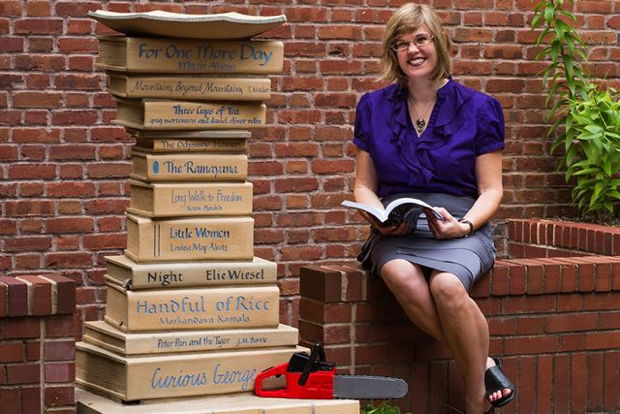
That was out of desperation when I attended my first national conference in educational leadership — with a five-month-old. I was trying to figure out how to go and present and be Miss Professional Doctor Smart Marshall and then go back to the room and nurse. And my spouse came with me, and nobody slept for pretty much three days. [Laughing]
Hotel rooms are terrible.
It was awful! Our oldest was a premature baby, and he had to eat, and we had a lot of challenges. And I was trying to figure out, "How is this going to work? And how is everybody else doing this?"
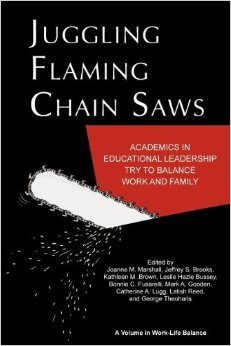
My second child came along a couple years later. He was not a preemie, but it was still really hard. And I'm on an escalator one day at the same conference, and I look down the escalator and I see a couple of my colleagues who have small children. And I'm thinking, All right, they're making this work. They must be better at this than I am. So let's figure out what they're doing. So I put together a panel of these luminaries in my field from all over the country that I knew had children.
I just sent an email around saying, can you recommend some people? — and I want diverse perspectives if at all possible — so a variety of family configurations, regions of the country, ethnicity, gay, straight, adopted — whatever it is, I want to know what you're doing. And your job is to come and tell us one thing that you do that you think helps you in managing work and life.
So people came, and it was this extraordinarily moving panel. It created space for people to be vulnerable. I was fortunate that people were willing to do that, both men and women. And the session ends, and one of my colleagues asked me, "What was that session? People are coming out of there in tears!" I said, "That was the Work Life Balance session, and people were telling about what they do." He said, "I need to be part of that."
And that happened the next year, too, and then we decided we should write this book. Given that we're scholars, we should write up our stories. If you have one tip, put it in there. The methodological term is autoethnography.
I found it fascinating because people were open about their experiences, and they wrote and talked about how this was such a different style of writing than what they normally do. And some of them bowed out at that stage, saying, "I just can't do this." Others talked about how surprisingly hard it was for them. And I got all this effusive feedback, such as, "I just had this big conversation with my husband that we've needed to have for years and we finally had it!"
After hearing these stories, I am impressed that any work gets done, because once I learn people’s stories, I'm thinking, "Really? You're doing that exceptional scholarship when you have this seriously debilitating disease, or you're caring for special-needs children, or your elderly mother lives several blocks away, what in the world? How are you doing this at all?" People are amazing.
Yes, it is, it's amazing! We have
a review up at The Well for the book
Mothers in Academia, and the woman who wrote the review, a PhD and a historian, starts the piece off by saying, "This is the first time I ever cried reading an academic book." So, these issues I think for — I won't just say woman academics, but parents, are so deep, they just get to the heart of who you are. For Christians, they’re our callings — to the academy, to parenting, to our families.
Exactly. I am part of the Religion and Education Special Interest Group of the American Educational Research Association. A couple of us are trying to put together a book that would weave in that idea of call with work-life balance. And so I started a panel this year at the educational leadership conference again asking, "How does your faith relate to your academic life?" Again, I’ve got a great panel of people from diverse perspectives. People are looking for a common space to share and listen. I expect that to turn into another book.
Oh, wonderful! We’ll keep an ear to the ground for that. Is your department mostly women, as an education department, being that the majority of teachers are women?
It is now. We just re-organized so that the leadership department joined teacher education, so now it is more heavily female. In my former department, I was the only married woman with children for a long time.
I’m surprised!
Yes. In fact, many of my female graduate students and staff then would say, "Oh, you're my inspiration because you have children," and I would say, "You have got to be kidding. I cannot be your model! Don’t make me do that.” [Laughing] But I was the only one. The people that were married didn't have children. (This is exactly what Mary Ann Mason has found in her national study: women professors tend not to have children.)
Thank you for modeling for us the life of an academic committed to her field but also having a family life and having a heart for all those who with you are “juggling flaming chainsaws!” Thank you, Joanne.
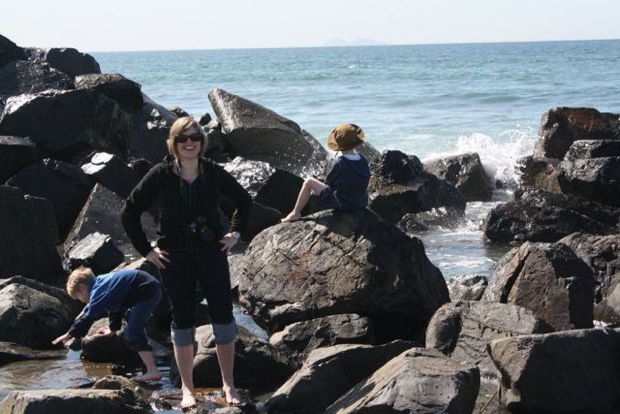
To hear more of Joanne’s interest in the overlap between personal and professional life, specifically dealing with religion and spirituality as they are implemented in public schooling, see this video at the Iowa State University website.
